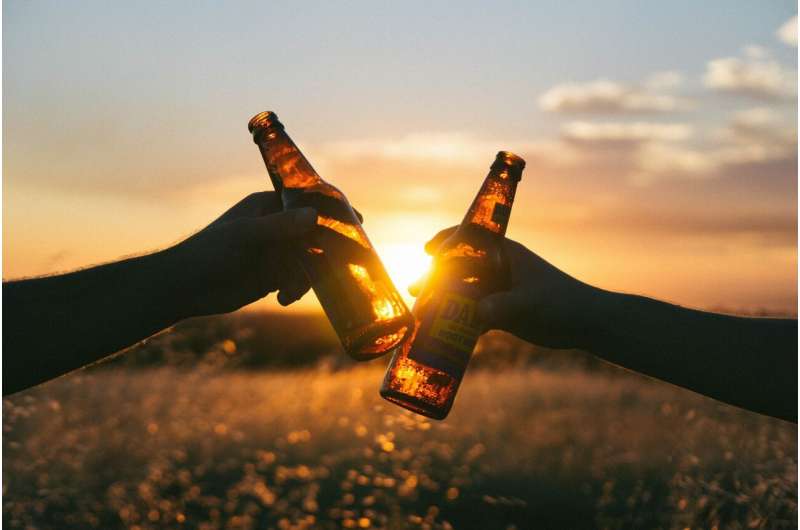This article has been reviewed according to Science X's editorial process and policies. Editors have highlighted the following attributes while ensuring the content's credibility:
fact-checked
peer-reviewed publication
trusted source
proofread
Study gauges support for restricting alcohol in kids' films

Alcohol exposure is common in popular films and research has demonstrated a link between alcohol exposure and use. Currently, only alcohol marketing in films is regulated—but not alcohol exposure, such as seeing an alcoholic beverage.
Researchers from the La Trobe University Center for Alcohol Policy Research launched a study to see how supportive people were of eight potential policies, and whether people would be more supportive of restrictions if they received information about how much alcohol was actually in popular films.
Led by Ph.D. candidate Maree Patsouras, the study, titled "Support for policies restricting alcohol exposure in films: Does feeding back the amount of alcohol in films increase support?" published in Drug and Alcohol Review , found all participants were supportive of four of the eight proposed policies, but two in particular.
"Policies such as not showing alcoholic beverages or alcohol use in films recommended towards children under 15, and not glorifying alcohol consumption / alcoholic beverages, were the most supported policies in the study," Patsouras said.
The study involved 252 Australian adults aged 18–75, who provided an estimate of how much alcohol they thought was in popular films at the start of the study, and then randomly placed into two groups. One group was shown an infographic outlining the actual amount of alcohol in films, to determine if this would impact their views of the policies.
The participants were asked to rate their support of eight policies aimed at addressing alcohol consumption in films. Those who were older, female or reported lower alcohol use were more supportive of the policies.
The policies supported by the majority of people were:
- Alcoholic beverages and consumption should not be shown in G or PG rated films
- Alcohol should not be glorified in films
The researchers said this was consistent with previous Australian research showing that obvious or prominent alcohol consumption should not be featured in films targeted towards children under 15 years of age.
"Consistently, participants in our study may have endorsed support for these items because they represented basic regulations they believed were important and were already in place. For example, G film classifications may be considered a 'proxy' for suitable children content, without awareness of actual exposure amounts," the study found.
The two policies with lowest support were:
- Alcoholic beverages should not be shown within any film, regardless of classification
- At the beginning of each film, information should be provided about how much alcohol the film contains.
The study found that males/other, those who reported more drinking, and younger participants, were less supportive of the policies.
The only policy that received higher support from the intervention group that received the infographic was: "Information about alcohol sponsorship should be provided."
The study concluded, "Participants were generally supportive of various public health-oriented film-specific alcohol policies … which was particularly the case for older, less heavy drinking, and female participants.
"Providing information about how much alcohol was in popular films was related to more support that there should be information about industry sponsorship at the start of the film but did not affect other policies or the overall policy score."
More information: Maree Patsouras et al, Support for policies restricting alcohol exposure in films: Does feeding back the amount of alcohol in films increase support?, Drug and Alcohol Review (2023). DOI: 10.1111/dar.13756




















